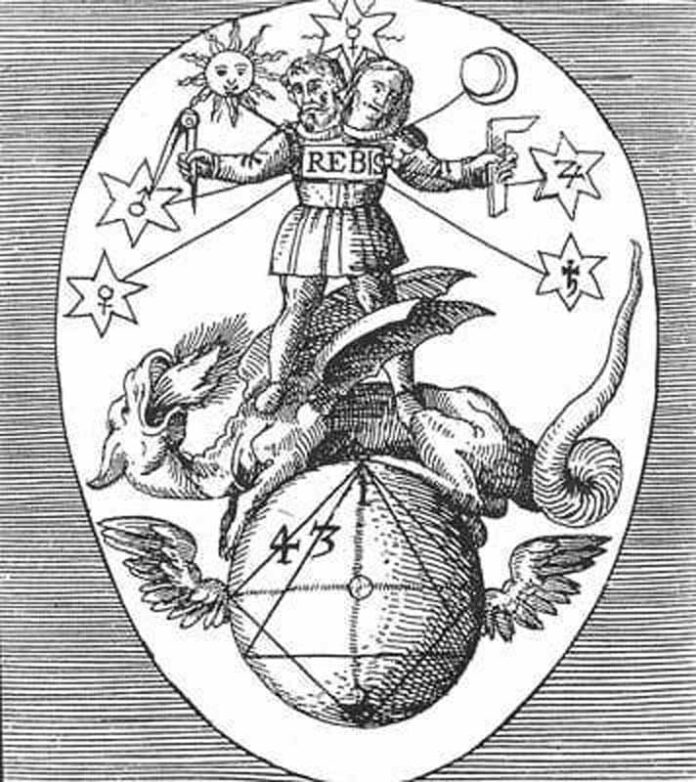“What are you afraid of?” Merlin asks the young Arthur.
“I don’t know!” cries the lad, stunned after having withdrawn the sword from the stone and heralded the king.
“Is it the dragon?” Merlin asks.
“Dragon?” Arthur shouts in fright. “What dragon?”
The dragon that is everywhere, explains the wily magician.
“What should I do?” queries Arthur. “Sleep?”
Merlin shrugs. “Just sleep in the arms of the dragon.”
The following morning, Merlin awakes to find Arthur practicing with his new sword.
“The dragon is great with the sword!” Arthur beams.
“Yes, yes,” Merlin says, rising. “You learn quickly.”
The 1981 film, Excalibur, contains several such scenes sparkling with wisdom drawn from the esoteric tradition, specifically the regal initiation undergone by sacred kings who were chosen by Providence to establish empires. But what is this dragon that is everywhere, with which one entwines in order to sleep, and employs in armed combat?
In keeping with traditions that trace their way back to primordial times, medieval alchemy posited a universal agent unique in essence that serves as the primary energy source of everything in the universe, from the base matter of a stone to the wellspring of the loftiest artistic inspiration.
This energy, which is tripartite in nature—active, passive and neutral—was often depicted as a dragon. It is the fifth element that makes possible the other four—earth, air, fire and water. Greeks called it the ether, Hindus akasha and modern science “dark energy.” It is the plastic medium engendered in the Book of Genesis when God says “Let there be light,” the invisible energy field into which the universe was manifest, from vast galaxies to the human beings who gaze up at them in wonder.
Medieval alchemists often depicted something else: a hermaphroditic figure, half king and half queen, who stands atop a subdued dragon. In mythology, dragons typically guard priceless treasure—and beautiful princesses. The hero who conquers this primordial energy wins the gold, which is knowledge, and mates with the princess, absorbing her primordial feminine attributes, for the dragon that is everywhere is dual-polarized: positive and negative, masculine and feminine, spirit and matter.
Tai chi may look pointless to a fatuous materialist, but initiates see a meditative dance with the dragon. For the body is not mere bone and tissue but intelligent energy, and the air around us is not empty space, but a magnetic field capable of guiding a sword to victory.
In the end, each of us is Arthur, the solar king, with a fair princess for a soul and a crafty magician inside of us who mediates between this world and the world of the dragon.









I am a fan. Look forward to your visits to the paper